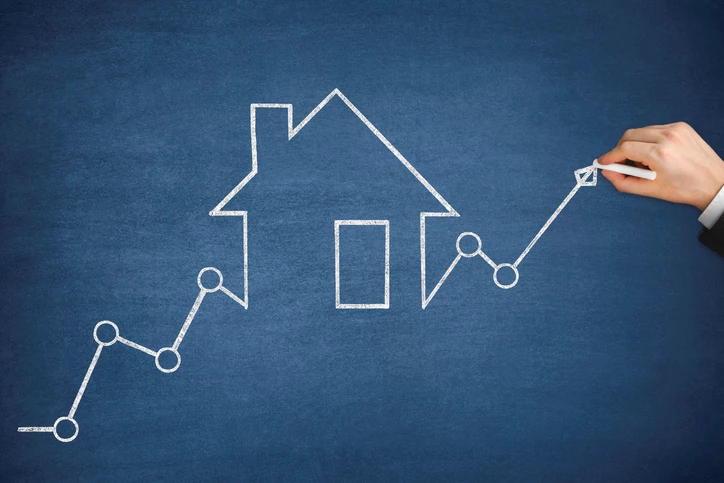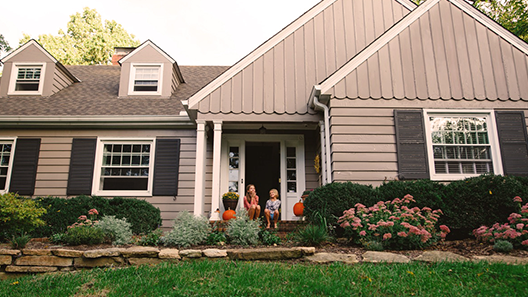It’s been over a year since the coronavirus pandemic first drove the U.S. economy into a deep recession. However, according to Whitehouse.gov, the most recent jobs report, “showed marked acceleration in March to the fastest pace since August of last year. The economy added 916,000 jobs in March, and job growth was revised up in both January and February.”

Interest Rates are Going Up
The March jobs report marks one year since the first pandemic job losses, and even with the improving job numbers, the number of employed Americans is not expected to return to its pre-pandemic levels until 2024. Additionally, the same Whitehouse report indicated that the effective unemployment rate could currently be, “around 3 percentage points higher than the headline unemployment rate.”
Nonetheless, the economy is expected to grow 3.7 percent for the year. Many parts of the economy have already begun to approach pre-Covid levels and mortgage activity remains high. However, history has demonstrated that one of the impacts of a growing economy is a corresponding rise in interest rates. Now that the world is beginning to emerge from COVID-19 we’re already beginning to see interest rates rise. With that in mind, let’s take a look at how rising rates will affect you.
What are Interest Rates?
According to Investopedia, “the interest rate is the amount a lender charges for the use of assets expressed as a percentage of the principal. The interest rate is typically noted on an annual basis known as the annual percentage rate (APR). The assets borrowed could include cash, consumer goods, or large assets such as a vehicle or homes.”
The Federal Funds Rate is the interest rate that banks pay for overnight borrowing in the federal funds market. The Federal Reserve uses it to impact other interest rates, including credit cards, mortgages, and bank loans. The Fed also uses the federal funds rate to curb inflation and improve the housing market by making it easier for people to take out home equity loans. Another important rate influenced by the federal funds rate is called the prime rate. This rate affects consumer interest rates including rates on bank loans and adjustable mortgages.
10-Year Treasury Bond and Why Its Important
The 10-year Treasury yield is closely watched as an indicator of broader investor confidence. This is because Treasury bills, notes, and bonds carry the full backing of the U.S. government, so they are viewed as the safest investment.
What Happens When Interest Rates Rise?
Let’s start with the good news. Higher interest rates mean higher returns on savings accounts. To tame inflation in 1980 and 1981, the Fed raised interest rates to a dizzying 19%. This caused savings accounts to earn unparalleled returns. Now the bad news. When interest rates are rising, businesses and consumers cut back on spending. Higher rates also cause an increase in prices on goods resulting in lower consumption.
When the economy is strong, interest rates tend to rise along with growth. Therefore, the expected post-COVID-19 growth in the economy is very likely to increase the cost of borrowing and drive up 30-year fixed mortgage rates.
What Happens When Prices Decrease?
A rise in interest rates will cause home prices to fall. Higher interest rates also lower the demand for housing and make buying or selling a home more difficult. From a home buyer's perspective, as mortgage rates increase, affordability decreases. This is generally because the lower cost of houses is far offset by the costs associated with higher mortgage rates.
Today’s market reflects some of the lowest rates a home buyer will be able to attain in the market for new home purchases as well as refinancing.
Benefits to Refinancing While Rates Are Still Low
Refinancing while rates are still below historic norms would likely lower your mortgage rate and thereby reduce your monthly mortgage payment. Related options include changing your loan type and term or going from an ARM to fixed payments since doing any of these could potentially put thousands of dollars in your pocket. Additionally, a refinance could shorten the term of your mortgage and/or allow you to pay it off sooner. Another positive aspect of refinancing is potentially eliminating PMI (private mortgage insurance.)
Should I Wait to Buy a House?
Whether or not to wait to buy a house depends on your financial situation and personal needs. It’s difficult to predict exactly what the future holds in terms of mortgage interest rates, and ultimately the right time to buy a house is when it’s right for you. Currently, mortgage rates remain near historic lows, and if you have been putting off buying your dream home, it might be time to turn that goal into reality. Homebuyers still have a tremendous opportunity to lock in extremely low-interest rates and get a house that may be of reach once rates return to their historic averages.
*https://www.corelogic.com/intelligence/home-equity-gains-reached-new-highs-in-2021/
Disclaimer: by refinancing the existing loan, the total finance charges may be higher over the life of the loan.



